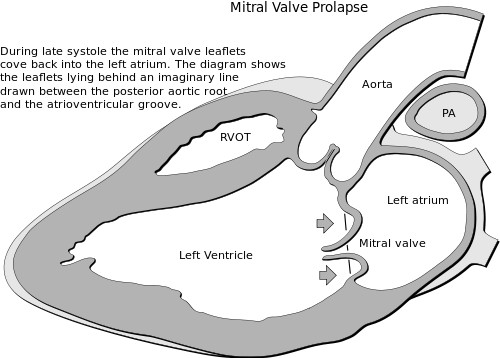Mitral Valve prolapse is a condition where the leaflets of the mitral valve fail close properly. It means that part of the valve rises above the plane of the valve into the left atrium. In many cases, the condition is harmless. However, it can cause mitral valve regurgitation (leaky valve allowing blood to flow backwards). It can be inherited. Although seen in men and women, it is more common in women. It can also be associated with connective tissue disorders such as Marfan syndrome.

Prolapse of the mitral valve leaflets is caused by elongation of the chordae tendonae (like parachute chords) and the leaflets themselves causing them to fly backward into the left atrium. To understand how the mitral valve works, think of a parachute, cut in half, and folded back on itself (see figure). You can understand that if the parachute chords or the parachute material itself were too long, it might cause a problem!
Mitral valve prolapse can cause a variety of symptoms including: chest pain, dizziness, palpatations, panic attacks, or shortness of breath. If regurgitation occurs, more symptoms can become worse.





